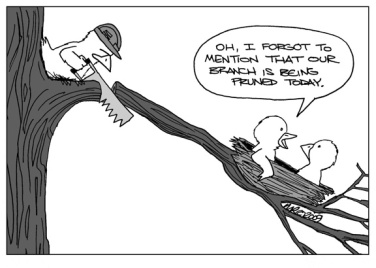Mainstream economics — a wildly inconsistent project In fact, most mainstream economists have never concerned themselves much with the workings of the economic systemm as a whole … The dominant concern, rather, has been, and remains, with highly specific or partial analyses of some highly restricted sectors or forms of behaviour … To the extent that it has ever been meaningful for the various disparate results or theorems of these economists to be considered as a whole, the clearest conclusion that can be drawn is that they are mostly wildly inconsistent with each other … Indeed at the level of substantive theory the project is marked by overall incoherence and lack of cohesion amongst its various strands, and with significant uncertainty even as to what is worth pursuing. The proliferation of economic models during the last twenty-thirty years is often presented by mainstream economists as a sign of great diversity and abundance of new ideas But it is — as argued by Lawson — really not that simple. In reality it is rather “plus ça change, plus c’est la même chose.” Why? Because almost all the change and diversity that mainstream economists applaud only takes place within the analytic-formalistic modeling strategy that makes up the core of mainstream economics. All the models and theories that do not live up to the precepts of the mainstream methodological canon are pruned.
Topics:
Lars Pålsson Syll considers the following as important: Economics
This could be interesting, too:
Lars Pålsson Syll writes Schuldenbremse bye bye
Lars Pålsson Syll writes What’s wrong with economics — a primer
Lars Pålsson Syll writes Krigskeynesianismens återkomst
Lars Pålsson Syll writes Finding Eigenvalues and Eigenvectors (student stuff)
Mainstream economics — a wildly inconsistent project
In fact, most mainstream economists have never concerned themselves much with the workings of the economic systemm as a whole … The dominant concern, rather, has been, and remains, with highly specific or partial analyses of some highly restricted sectors or forms of behaviour …
To the extent that it has ever been meaningful for the various disparate results or theorems of these economists to be considered as a whole, the clearest conclusion that can be drawn is that they are mostly wildly inconsistent with each other …
Indeed at the level of substantive theory the project is marked by overall incoherence and lack of cohesion amongst its various strands, and with significant uncertainty even as to what is worth pursuing.
The proliferation of economic models during the last twenty-thirty years is often presented by mainstream economists as a sign of great diversity and abundance of new ideas
But it is — as argued by Lawson — really not that simple. In reality it is rather “plus ça change, plus c’est la même chose.”
 Why? Because almost all the change and diversity that mainstream economists applaud only takes place within the analytic-formalistic modeling strategy that makes up the core of mainstream economics. All the models and theories that do not live up to the precepts of the mainstream methodological canon are pruned. You’re free to take your models and apply them to whatever you want – as long as you do it within the mainstream approach and its modeling strategy. If you do not follow this particular mathematical-deductive analytical formalism you’re not even considered doing economics. ‘If it isn’t modeled, it isn’t economics.’ That isn’t pluralism. It’s a methodological reductionist straightjacket.
Why? Because almost all the change and diversity that mainstream economists applaud only takes place within the analytic-formalistic modeling strategy that makes up the core of mainstream economics. All the models and theories that do not live up to the precepts of the mainstream methodological canon are pruned. You’re free to take your models and apply them to whatever you want – as long as you do it within the mainstream approach and its modeling strategy. If you do not follow this particular mathematical-deductive analytical formalism you’re not even considered doing economics. ‘If it isn’t modeled, it isn’t economics.’ That isn’t pluralism. It’s a methodological reductionist straightjacket.
So, even though we have seen a proliferation of models, it has almost exclusively taken place as a kind of axiomatic variation within the standard ‘urmodel,’ which is always used as a self-evident bench-mark.
Applying closed analytical-formalist-mathematical-deductivist-axiomatic models, built on atomistic-reductionist assumptions to a world assumed to consist of atomistic-isolated entities, is a sure recipe for failure when the real world is known to be an open system where complex and relational structures and agents interact. Validly deducing things in models of that kind doesn’t much help us understanding or explaining what is taking place in the real world we happen to live in. Validly deducing things from patently unreal assumptions — that we all know are purely fictional — makes most of the modeling exercises pursued by mainstream economists rather pointless. It’s simply not the stuff that real understanding and explanation in science is made of. Just telling us that the plethora of models that make up modern economics ‘expand the range of the discipline’s insights’ is nothing short of hand waving.
No matter how many thousands of models mainstream economists come up with, as long as they are just ‘wildly inconsistent’ axiomatic variations of the same old mathematical-deductive ilk, they will not take us one single inch closer to giving us relevant and usable means to further our understanding and explanation of real economies.
